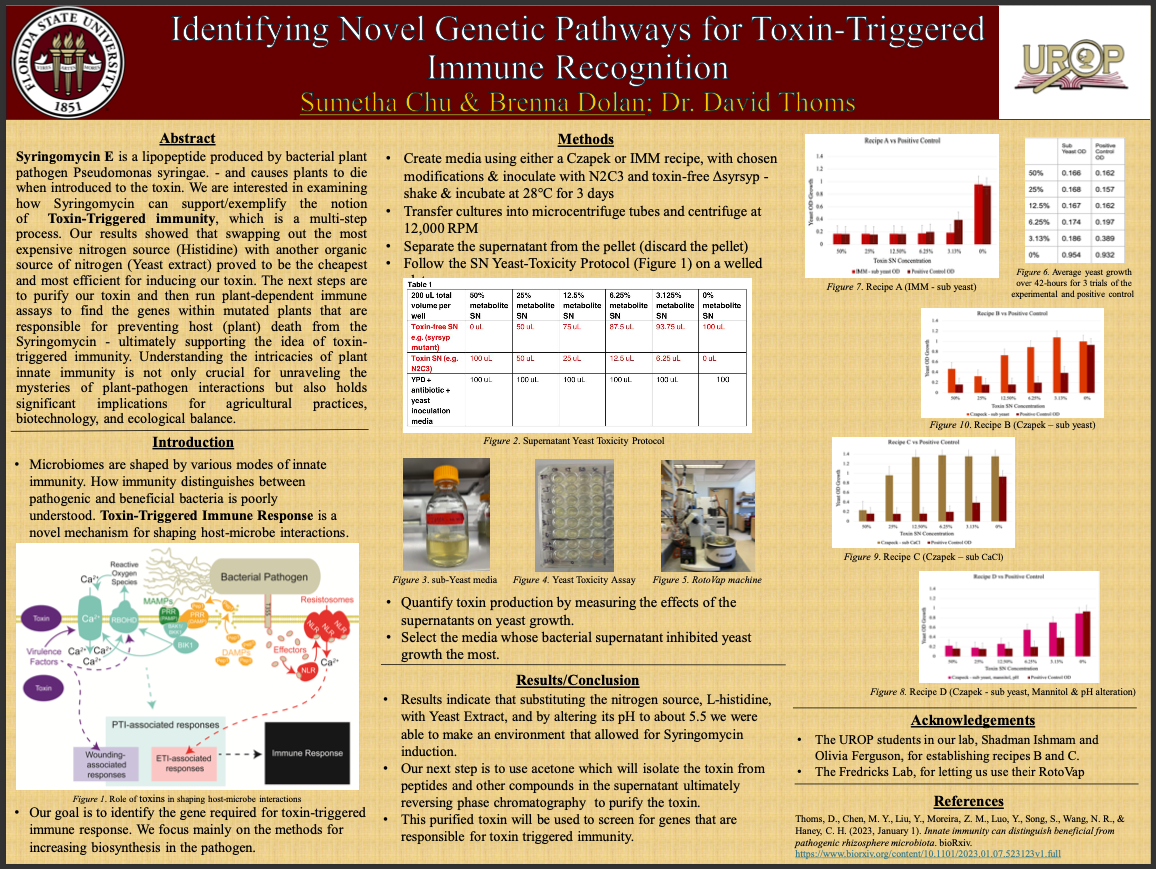Research Symposium
24th annual Undergraduate Research Symposium, April 3, 2024
Brenna Dolan Poster Session 3: 1:30 pm - 2:30 pm /63

BIO
Hi, my name is Brenna Dolan, and I am currently a sophomore here at Florida State University. I am studying biology and I am on the premed track, with aspirations of going to medical school and eventually specializing in Dermatology. While at Florida State, I have been involved in a few Intermural sports, the residential conduct board, the environmental service club, I work as an RA for the school, and I am also involved in research.
I work in the Thoms’ microbiology lab, where I am presently researching the toxin Syringomycin’s effect on wall type and mutated plants. We are essentially inducing, purifying, and then running plant-dependent immune assays to find a common gene in mutated plants that allow them to be unaffected by the toxin. This will contribute to our lab’s ultimate goal – which is to establish and support the notion that there is a previously unknown type of immunity – toxin triggered immunity. We are currently in the purifying phase, and we are making great strides in our experiments.
Identifying Novel Genetic Pathways for Toxin-Triggered Immune Recognition
Authors: Brenna Dolan, David ThomsStudent Major: Biological Sciences
Mentor: David Thoms
Mentor's Department: Biological Science Mentor's College: Florida State University Co-Presenters: Sumetha Chu
Abstract
Syringomycin E is a lipopeptide produced by bacterial plant pathogen Pseudomonas syringae. - and causes plants to die when introduced to the toxin. We are interested in examining how Syringomycin can support/exemplify the notion of Toxin-Triggered immunity, which is a multi-step process. Our results showed that swapping out the most expensive nitrogen source (Histidine) with another organic source of nitrogen (Yeast extract) proved to be the cheapest and most efficient for inducing our toxin. The next steps are to purify our toxin and then run plant-dependent immune assays to find the genes within mutated plants that are responsible for preventing host (plant) death from the Syringomycin - ultimately supporting the idea of toxin- triggered immunity. Understanding the intricacies of plant innate immunity is not only crucial for unraveling the mysteries of plant-pathogen interactions but also holds significant implications for agricultural practices, biotechnology, and ecological balance.
Keywords: Immunity, toxin, plants, toxin-triggered immunity, syringomycin

